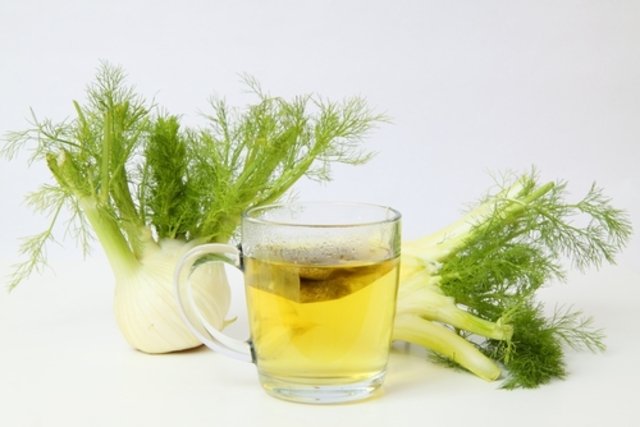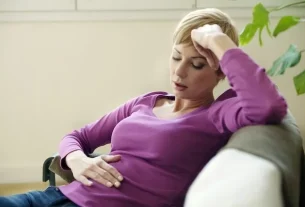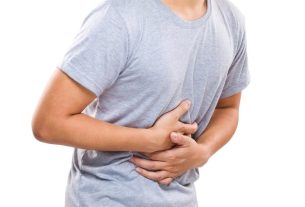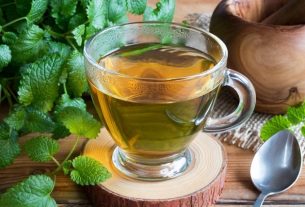Natural treatment to eliminate gas, such as increasing the consumption of foods rich in fiber and water intake during the day, avoiding foods that ferment in the intestine, or drinking teas to eliminate gas, such as peppermint tea, They help improve bowel function and prevent gas formation, bringing relief from discomfort quickly.
Excess gas is most often normal and can happen due to the fermentation of food by intestinal bacteria during the digestion process, or the consumption of carbonated drinks, swallowing a lot of air when eating or talking, or even pregnancy. However, excess gas can also arise due to gastrointestinal changes, such as constipation, for example. See other causes of excess gas.
It is important to consult a gastroenterologist when excess gas becomes constant, as there may be some gastrointestinal change, which must be evaluated so that the most appropriate treatment can be given.
Watch the following video with nutritionist Tatiana Zanin with tips on how to get rid of gas:
Natural ways to get rid of gas
Some natural treatments that help eliminate gas are:
1. Eat more fiber
Increasing your consumption of foods with fiber, such as rolled oats, wheat bran, fruits and vegetables, helps relieve constipation that can cause excess gas. Check out the complete list of fiber-rich foods.
These foods help to increase intestinal transit and the volume of feces, facilitating their elimination, in addition to reducing gas and excessive flatulence, especially when consumed in conjunction with adequate amounts of water.
2. Avoid foods that cause gas
Avoiding foods that cause gas, such as beans, broccoli, cauliflower, asparagus, lentils, cabbage, onions, radishes, turnips, Brussels sprouts, potatoes, sweets or milk, for example, can help reduce the formation of gas in the intestine and excessive flatulence.
This is because these foods can increase fermentation in the intestine, increasing the amount of gases formed, and it is therefore recommended to avoid or reduce the consumption of these foods, to eliminate excess gas and alleviate discomfort. See the complete list of foods that cause gas.
3. Avoid consuming carbonated drinks
Avoiding consuming carbonated drinks frequently or in excess, such as soft drinks, sparkling water or beer, for example, can help eliminate or avoid excess gas, as these drinks contain carbon dioxide in their composition, increasing the amount of gas in the gastrointestinal system. , resulting in excess gas.
Therefore, preference should be given to consuming still drinks, such as water, natural juices or teas, for example.
4. Drink more water
Drinking more water helps get rid of gas, mainly caused by constipation. This is because water promotes hydration of feces and helps increase intestinal transit, which relieves constipation and excess gas. See other ways to end constipation.
Therefore, it is recommended to drink at least 1.5 to 2 liters of water per day. For people who have difficulty drinking water, you can add half a squeezed lemon to 1 liter of water and drink it throughout the day. Adding mint leaves to a bottle of water and ice also slightly changes the taste of the water, making it easier to drink water.
However, the ideal amount of water per day may vary from person to person, depending on weight and age. See how to calculate the amount of water you should drink per day.
5. Drink teas to eliminate gas
Some teas, such as peppermint tea or chamomile tea, help eliminate gas as they have anti-inflammatory, digestive and antispasmodic properties, helping to alleviate the feeling of a bloated belly and abdominal discomfort caused by poor digestion. for example.
These teas can be drunk warm or iced and help eliminate intestinal gas, bringing relief from symptoms quickly and naturally. Learn how to prepare teas to get rid of gas.
6. Massage the belly
Another strategy that helps loosen the intestines is to walk for 20 to 30 minutes and massage the area between the navel and the intimate area, while sitting on the toilet, for example.
This stimulus helps to loosen the intestine, which normally promotes the release of trapped gases, relieving discomfort.
When to go to the doctor
It is advisable to consult a gastroenterologist when the pain caused by gas is very intense and there are no signs of improvement even when following the guidelines above, or when the person has very foul-smelling gas on a regular basis and a bloated belly.
In this situation, the doctor must assess the health and check if there is any important intestinal change, which must be treated, such as a food intolerance or Crohn’s disease, for example. Some of the symptoms that this disease can cause include intestinal irritation, bleeding, sensitivity to some foods, diarrhea and intestinal pain.

Sign up for our newsletter and stay up to date with exclusive news
that can transform your routine!
Warning: Undefined array key "title" in /home/storelat/public_html/wp-content/plugins/link-whisper-premium/templates/frontend/related-posts.php on line 12
Warning: Undefined array key "title_tag" in /home/storelat/public_html/wp-content/plugins/link-whisper-premium/templates/frontend/related-posts.php on line 13




